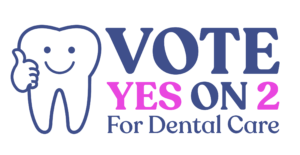BALLOT QUESTION 2 – PART 2
October 17, 2022
 If you did not catch Part 1 of this column last week, you can read it at www.towncommonmedia.com.
If you did not catch Part 1 of this column last week, you can read it at www.towncommonmedia.com.
As I explained last week, dental insurance is not really insurance. All plans available are dental benefit plans, intended to cover basic services. True insurance covers loss and damage. Dental insurance was set up like this in the 1970’s and has not changed. While premiums have increased, the percentage paid out by these companies has decreased significantly. Ballot Question 2 does not change the general structure of dental plans, unfortunately, but takes aim at the amount of money companies collect vs. the amount they pay out for direct patient care.
Taken directly from the Mass.gov website:
“This proposed law would direct the Commissioner of the Massachusetts Division of Insurance to approve or disapprove the rates of dental benefit plans and would require that a dental insurance carrier meet an annual aggregate medical loss ratio for its covered dental benefit plans of 83 percent. The medical loss ratio would measure the amount of premium dollars a dental insurance carrier spends on its members’ dental expenses and quality improvements, as opposed to administrative expenses. If a carrier’s annual aggregate medical loss ratio is less than 83 percent, the carrier would be required to refund the excess premiums to its covered individuals and groups. The proposed law would allow the Commissioner to waive or adjust the refunds only if it is determined that issuing refunds would result in financial impairment for the carrier.”
Those in favor of this law say:
“A YES vote expands consumer protection laws that already exist for medical insurance companies to dental insurance companies.
A YES vote ensures better coverage and value for patients, instead of unreasonable corporate waste.
For example, according to its own 2019 Form 990, (the major dental insurance carrier in Massachusetts alone) paid executive bonuses, commissions, and payments to affiliates of $382 million, while only paying $177 million for patient care.
A YES vote would eliminate this inequity. Similar to medical insurance, this law would require dental insurance companies to allocate at least 83% of paid premiums to patient care, or refund premiums to patients to meet this standard.
Insurance companies will try to confuse voters by saying that dental insurance premiums will increase. This is false, because Section 2(d) of the law specifically disallows increases above the consumer price index without state approval.”
Those against this law will say that premiums will increase 38%. Well, that was debunked in the statement above. They will also say, “There is no law like this ballot question anywhere in the nation.” That is the point – Disruption of the current inefficient and unfair system. While this law will not fix the system completely, it will wake the rest of the country up to the inequality.
Vote YES on Question 2.
Dr. St. Clair maintains a private dental practice in Rowley and Newburyport dedicated to health-centered family dentistry. He has a special interest in treating sleep apnea and TMJ problems. If there are certain topics you would like to see written about or questions you have please email them to him at jpstclair@stclairdmd.com
BALLOT QUESTION 2 – PART 1
October 11, 2022
 As a general rule, the team at my office is discouraged from using the word “insurance”, because dental insurance is not really insurance. They are dental benefits. True insurance covers loss and damage.
As a general rule, the team at my office is discouraged from using the word “insurance”, because dental insurance is not really insurance. They are dental benefits. True insurance covers loss and damage.
I offer medical insurance to my team as all small businesses do in Massachusetts. A family plan in my office costs $2600 per month. A single person is $900 per month. That includes a $2000 deductible per person as well. Said a different way, $33,200 or $12,800 respectively, is paid out by the patient before the insurance company pays towards anything. When I was growing up, this was called catastrophic insurance; you weren’t covered for the minor stuff, but if you needed anything else, there was insurance coverage.
Dental “insurance” on the other hand, is the complete opposite. Dental benefit plans are meant to cover (or at least partially cover) the minor stuff, but there are no benefits for significant need. In my experience, for an individual looking to get dental benefits on their own, it costs around $700 per year. That gets you an average of $1000-1500 of coverage for the year. THAT is not insurance. Dental benefits are meant to cover the basics of dental care, not the catastrophic issues. That’s the difference between medical insurance and dental benefits.
You may ask, how do insurance companies make any money on this model? They accomplish this in two main ways. The first is that they rely on a significant number of patients not using their benefits. The last statistic I have seen shows that about 50% of the population, regardless of whether they have dental benefits or not, do not visit a dentist at least once per year.
The other way insurance companies make money is to deny or not cover many services. While it may make sense that there is no coverage for services that are purely cosmetic, it makes absolutely zero sense that preventative services such as nightguards or occlusal orthotics (that a significant number of patients really need to control and prevent many issues), are rarely covered. These companies look for every way possible to not pay or delay payment. Ballot Question 2 is asking, Is the percentage of what the insurance company is taking in vs. what they pay out towards patient care, in the best interest of patient care? I’ll come back to that.
All dental offices hear the same things from patients with “insurance” such as, “Is that covered by my insurance?” or “I haven’t been to the dentist in X years because I haven’t had insurance.” Some may say, “Well, dentistry is expensive.” Dentistry can be costly if extensive dental work is needed. For that same $700 per year for individual insurance, you could skip the dental plan and spend 100% of your dollars to see ANY dentist you want twice per year to have your teeth cleaned, x-rayed, and an exam to check for decay, gum disease, joint health and cancer. While this is not what Question 2 is about, it is something to keep in mind. Preventative dental care (excellent home care and routine professional care) is the key to helping prevent the need for more expensive, extensive dentistry.
The way the system is set up now really hasn’t changed since the early 1970’s. That same $1000-1500 benefit existed then, meanwhile everything else has gone way up.
I will continue this column next week to discuss how a YES vote on Ballot Question 2 has the potential to initiate a disruption in the dental insurance industry, in the best interest of patient care. While it isn’t a total solution to the poor system in place, it will hold insurance companies much more accountable for where premium money is spent.
Dr. St. Clair maintains a private dental practice in Rowley and Newburyport dedicated to health-centered family dentistry. He has a special interest in treating sleep apnea and TMJ problems. If there are certain topics you would like to see written about or questions you have please email them to him at jpstclair@stclairdmd.com
CHRONIC INFLAMMATION IS BAD
October 3, 2022
 If you have read these columns in the past, you have seen me write about periodontal (gum) health and its relationship to systemic health. There is a slew of scientific evidence that poor periodontal health is not good for you systemically. It has been linked to heart disease, stroke, low birth weight babies, diabetes and more.
If you have read these columns in the past, you have seen me write about periodontal (gum) health and its relationship to systemic health. There is a slew of scientific evidence that poor periodontal health is not good for you systemically. It has been linked to heart disease, stroke, low birth weight babies, diabetes and more.
Gum tissue health is an easy thing for patients to be lax about, or even ignore. Why? The main reason is that gum problems do not hurt, unless they are so severe that tooth loss is inevitable. It is the chronic inflammation in the gum tissue, regardless of whether it hurts or not, that has the potential to affect your teeth and your general health over time.
How many times have you been to the dentist and heard, “Mr. Smith, you have a lot more bleeding than you should around your gums”? You then respond by saying, “My gums don’t bleed when I brush.” And you hear, “You need to brush better.” Then it happens all over again the next time you are at the dentist.
If the goal is to keep your teeth and strive for good health, the scenario above is totally insufficient. We, dentists and patients, need to change our frame of mind about tissue health and really focus on the fact that chronic inflammation, anywhere in the body, is bad. Tissue health is achievable in every single person. It is a matter of changing our views on what is acceptable and what is not acceptable that can make a difference.
Patients love dentists who say that everything looks fine. Sometimes that is the case. However, most of the time there is room for improvement. If there were things in your mouth that could be healthier, would you rather have a dentist say that everything looked okay, or one who made suggestions for better health? Keep an open mind and be willing to put the effort in to make a healthier you.
The oral cavity and the gum tissue around each and every tooth is a haven for bacteria. Everyone has bacteria. It is how well the bacteria are controlled that determines tissue health. Patients typically do not want to hear that they need treatment. If you went to the physician and you had signs of heart disease, would you rather hear, “Mr. Smith, you have signs of heart disease. Let’s wait until you have a heart attack and then treat it.” vs. “Mr. Smith, you have signs of heart disease. These are the things that you should do to help prevent the progression of the disease. Let’s work together on lowering your risk of problems in the future.”
I have said it before and I’ll say it again – the best thing you can do for yourself when it comes to your dental health is regular maintenance. Depending on a person’s needs, regular maintenance might be once a year for some, but every 2-3 months for someone else. Even if you have no dental benefits and are worried about needing a bunch of dental work, the best thing you can do for yourself is regular maintenance. Many dental offices have plans that are very reasonable to help you achieve better dental health.
The mouth is the gateway to the rest of the body – don’t ignore it.
Dr. St. Clair maintains a private dental practice in Rowley and Newburyport dedicated to health-centered family dentistry. He has a special interest in treating sleep apnea and TMJ problems. If there are certain topics you would like to see written about or questions you have please email them to him at jpstclair@stclairdmd.com







